-
Latest Version
Python 3.13.5 (64-bit) LATEST
-
Review by
-
Operating System
Windows 7 64 / Windows 8 64 / Windows 10 64 / Windows 11
-
User Rating
Click to vote -
Author / Product
-
Filename
python-3.13.5.amd64.exe
Note that Python 3.9+ cannot be used on Windows 7 or earlier.
Python is a high-level, interpreted programming language that emphasizes code readability and simplicity. Guido van Rossum initially developed it in the late 1980s, and since then, it has evolved into a robust language with a vast ecosystem of libraries and frameworks.
Python's versatility allows it to be used for a wide range of applications, including web development, data analysis, scientific computing, artificial intelligence, machine learning, and automation.
Many Python programmers report substantial productivity gains and feel the language encourages the development of higher quality, more maintainable code. The app runs on Windows, Linux/Unix, macOS, OS/2, Amiga, Palm Handhelds, and Nokia mobile phones.
The app has also been ported to the Java and .NET virtual machines. Python 64-bit is distributed under an OSI-approved open-source license that makes it free to use, even for commercial products.
Some of its key distinguishing features include:
- Very clear, readable syntax
- Strong introspection capabilities
- Intuitive object orientation
- Natural expression of procedural code
- Full modularity, supporting hierarchical packages
- Exception-based error handling
- Very high-level dynamic data types
- Extensive standard libraries and third-party modules for virtually every task
- Extensions and modules easily are written in C, C++ (or Java for Jython, or .NET languages for IronPython)
- Embeddable within applications as a scripting interface
- HTML and XML
- JSON
- E-mail processing.
- Support for FTP, IMAP, and other Internet protocols.
- Easy-to-use socket interface.
- Requests, a powerful HTTP client library.
- BeautifulSoup, is an HTML parser that can handle all sorts of oddball HTML.
- Feedparser for parsing RSS/Atom feeds.
- Paramiko, implementing the SSH2 protocol.
- Twisted Python, a framework for asynchronous network programming.
Easy-to-learn Syntax: Python's syntax is clean and intuitive, making it an excellent choice for beginners. Its indentation-based structure enforces code readability and reduces the chances of syntactical errors.
Extensive Libraries: It boasts a rich collection of libraries, such as NumPy for scientific computing, Pandas for data manipulation, Matplotlib for data visualization, TensorFlow and PyTorch for machine learning, Django and Flask for web development, and many more. These libraries significantly accelerate development and reduce the need for reinventing the wheel.
Cross-Platform Compatibility: The app is available on major operating systems, including Windows, macOS, and Linux, ensuring that developers can seamlessly switch between different environments.
Dynamically Typed: The app is a dynamically typed language, which means variables do not need explicit declarations. This feature allows for faster development and easy prototyping.
Integration Capabilities: It easily integrates with other programming languages like C, C++, and Java, enabling developers to leverage existing codebases and libraries.
User Interface
It is primarily a command-line-based language, meaning it lacks a dedicated graphical user interface (GUI). However, several Integrated Development Environments (IDEs) and code editors provide a visual interface to enhance the development experience.
Popular choices include PyCharm, Visual Studio Code, Atom, and Jupyter Notebook. These tools offer features like code autocompletion, syntax highlighting, debugging capabilities, and easy project management.
Installation and Setup
Installing Python is a straightforward process. The official website provides installers for various operating systems. Users can download the installer, run it, and follow the step-by-step instructions to complete the installation.
It also offers a package manager called pip, which allows users to install additional libraries and frameworks effortlessly.
FAQ
What makes Python stand out as a programming language?
Python's simplicity, readability, and extensive library support make it stand out. It has a gentle learning curve and allows developers to accomplish more with fewer lines of code.
Can I build web applications using Python?
Absolutely! It offers powerful web frameworks like Django and Flask, which simplify web development tasks and provide robust tools for creating scalable applications.
Is Python suitable for scientific computing and data analysis?
Yes, the app is widely used in the scientific community. Libraries like NumPy, Pandas, and Matplotlib provide comprehensive support for numerical computing, data manipulation, and visualization.
Are there resources available for learning Python?
Yes, it has an extensive community with a wealth of learning resources. Online tutorials, documentation, interactive courses, and books cater to learners of all levels.
Can I contribute to the Python community?
Absolutely! Python is an open-source language, and contributions are welcomed. You can contribute to the development of the core language, and libraries, or participate in open-source projects.
What is Python?
A programming language finds application in various domains. It serves as an introductory programming language in several high schools and colleges due to its simplicity. However, it also holds significance among professional software developers at renowned establishments like Google, NASA, and Lucasfilm Ltd.
Can I uninstall Python?
The answer to this question depends on the origin of your Python installation.
If someone deliberately installed Python on your machine, you can safely remove it without causing any harm. On Windows, you can use the Add/Remove Programs icon in the Control Panel for this purpose.
If Python was installed as part of a third-party application, you can remove it; however, be aware that the associated application will no longer function properly. It is advisable to utilize the uninstaller provided by the specific application rather than directly removing Python.
If the app came pre-installed with your operating system, it is not recommended to uninstall it. Doing so would render any tools reliant on Python inoperable, and some of these tools might be essential to you. In such a scenario, reinstalling the entire operating system would be necessary to restore functionality.
Alternatives
JavaScript: Primarily used for web development, JavaScript is a versatile language with an extensive ecosystem of libraries and frameworks. It is particularly suitable for client-side scripting and interactive web applications.
R: A programming language specifically designed for statistical analysis and data visualization. It excels in the field of data science and is preferred by statisticians and researchers.
Java: A general-purpose language known for its robustness, scalability, and cross-platform compatibility. It is widely used for building enterprise-level applications, Android development, and large-scale systems.
Ruby: A dynamic, object-oriented language known for its simplicity and elegant syntax. It is often used in web development frameworks like Ruby on Rails.
System Requirements
- Operating System: Windows 11, 10, 8 or 7 (32/64bit)
- Processor: 1 GHz or faster
- RAM: 1 GB (minimum), 4 GB or more (recommended)
- Disk Space: 200 MB for Python installation
- Simplicity and readability
- Vast library ecosystem
- Cross-platform compatibility
- Extensive community support
- Integration capabilities
- Global Interpreter Lock (GIL) can limit multi-threading performance
- Relatively slower execution speed compared to low-level languages
- Lack of a dedicated GUI (Graphical User Interface)
Python's versatility, simplicity, and extensive library support make it an exceptional programming language for various applications. Its intuitive syntax and broad community support contribute to its popularity among beginners and experienced developers alike. From web development to data science and artificial intelligence, it shines as a powerful and flexible tool.
Whether you are a novice programmer or a seasoned developer, Python's capabilities and vast ecosystem make it a worthy addition to your software toolkit. Good luck from the FileHorse review team with creating an application, data, website, IoT, or game using this amazing programming language!
Also Available: Python (32-bit) and Python for Mac
What's new in this version:
Windows:
- Avoid distributing modified pyconfig.h in the traditional installer. Extension module builds must always specify Py_GIL_DISABLED when targeting the free-threaded runtime.
Tests:
- Add test.support.subTests()
Library:
- Do not normalize locale name ‘C.UTF-8’ to ‘en_US.UTF-8’
- Restore support of integer-like objects with __index__() in random.getrandbits()
- Raise a correct exception for values greater than 0x7fffffff for the BINSTRING opcode in the C implementation of pickle
- Backported bugfixes in zipfile.Path from zipp 3.23. Fixed .name, .stem and other basename-based properties on Windows when working with a zipfile on disk
- email: Fix TypeError in email.utils.decode_params() when sorting RFC 2231 continuations that contain an unnumbered section
- email: Fix parsing of email message ID with invalid domain
- Fix libc thread safety issues with os by replacing getlogin with getlogin_r re-entrant version
- Fix formatting issues in json.dump() when both indent and skipkeys are used
Core and Builtins:
- Roll back changes to generator and list comprehensions that went into 3.13.4 to fix gh-127682, but which involved semantic and bytecode changes not appropriate for a bugfix release
C API:
- Fix Py_RETURN_NONE, Py_RETURN_TRUE and Py_RETURN_FALSE macros in the limited C API 3.11 and older: don’t treat Py_None, Py_True and Py_False as immortal
- Implement PyObject_DelAttr() and PyObject_DelAttrString() as macros in the limited C API 3.12 and older
 OperaOpera 120.0 Build 5543.38 (64-bit)
OperaOpera 120.0 Build 5543.38 (64-bit) SiyanoAVSiyanoAV 2.0
SiyanoAVSiyanoAV 2.0 PhotoshopAdobe Photoshop CC 2025 26.8.1 (64-bit)
PhotoshopAdobe Photoshop CC 2025 26.8.1 (64-bit) BlueStacksBlueStacks 10.42.86.1001
BlueStacksBlueStacks 10.42.86.1001 CapCutCapCut 6.5.0
CapCutCapCut 6.5.0 Premiere ProAdobe Premiere Pro CC 2025 25.3
Premiere ProAdobe Premiere Pro CC 2025 25.3 PC RepairPC Repair Tool 2025
PC RepairPC Repair Tool 2025 Hero WarsHero Wars - Online Action Game
Hero WarsHero Wars - Online Action Game SemrushSemrush - Keyword Research Tool
SemrushSemrush - Keyword Research Tool LockWiperiMyFone LockWiper (Android) 5.7.2
LockWiperiMyFone LockWiper (Android) 5.7.2
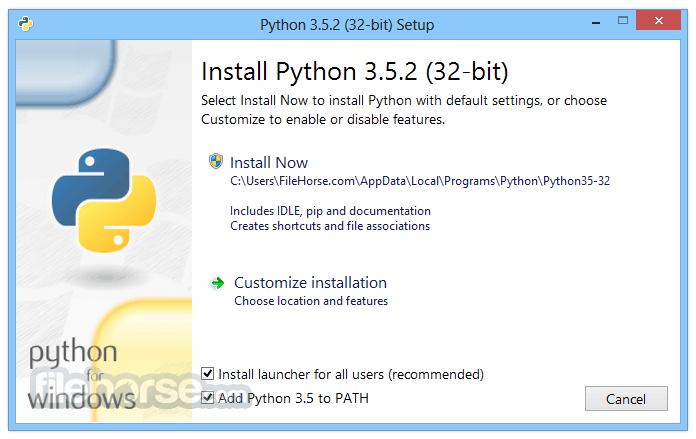
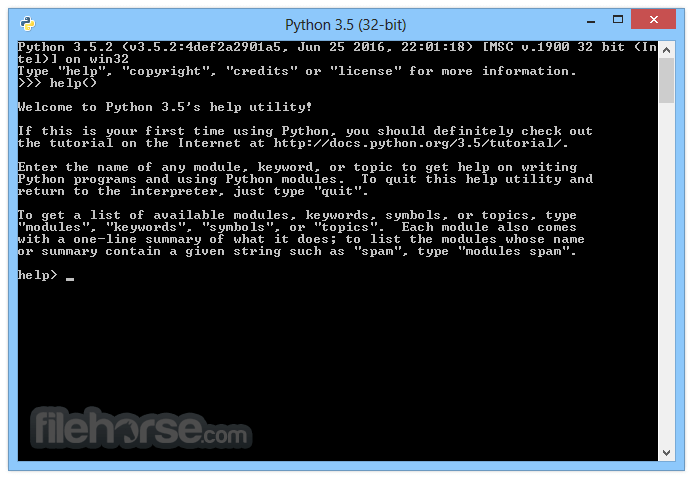
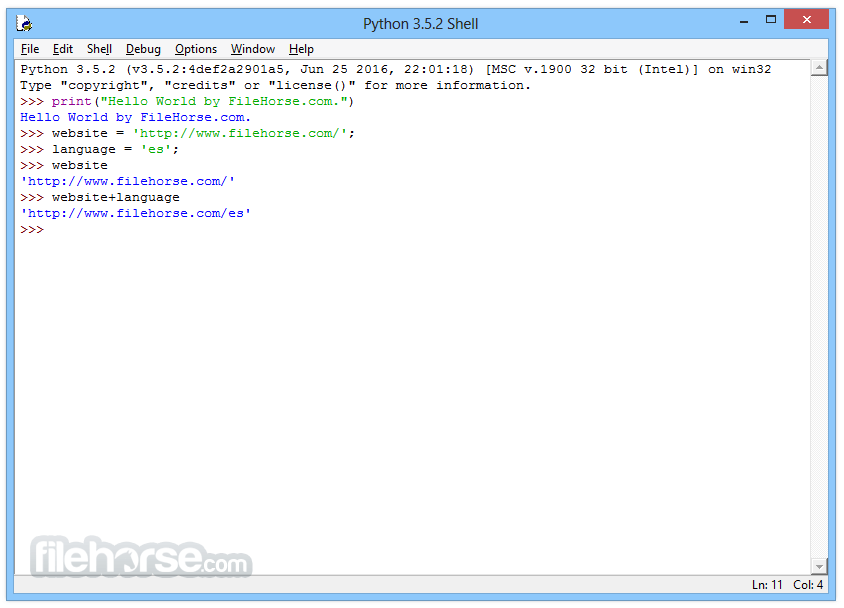
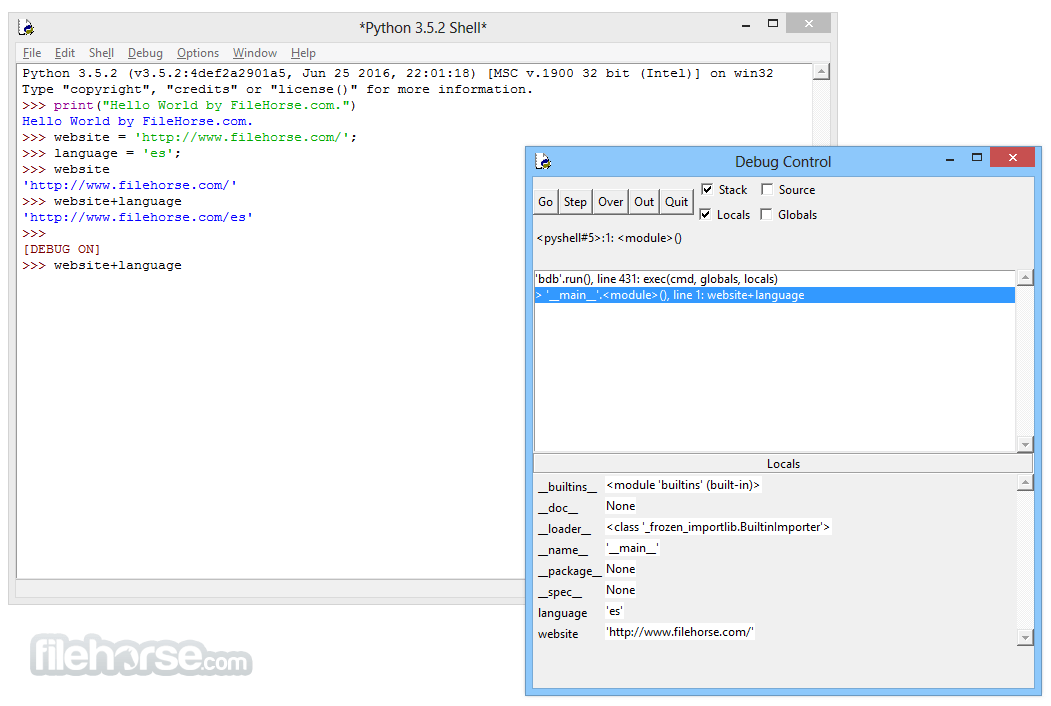
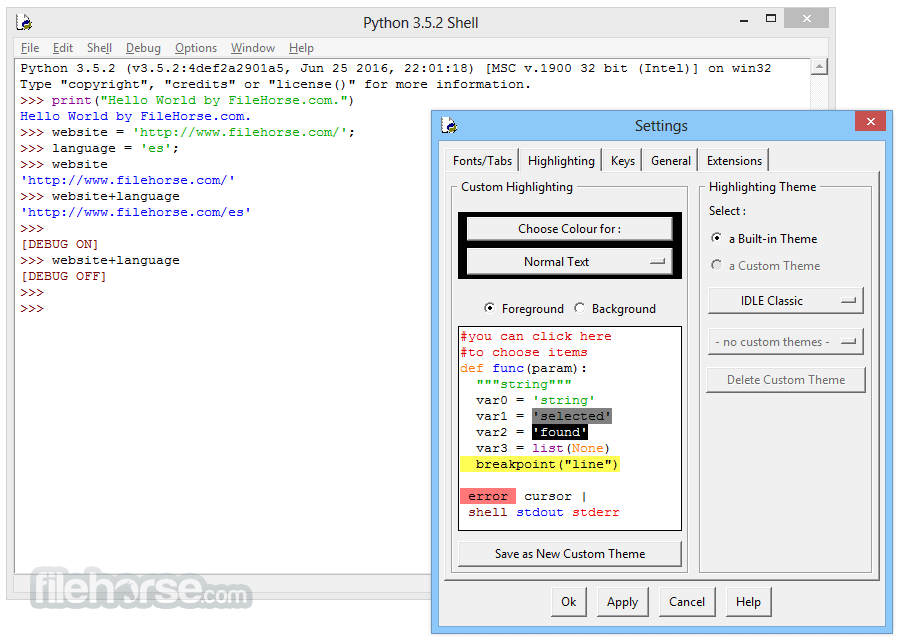





Comments and User Reviews